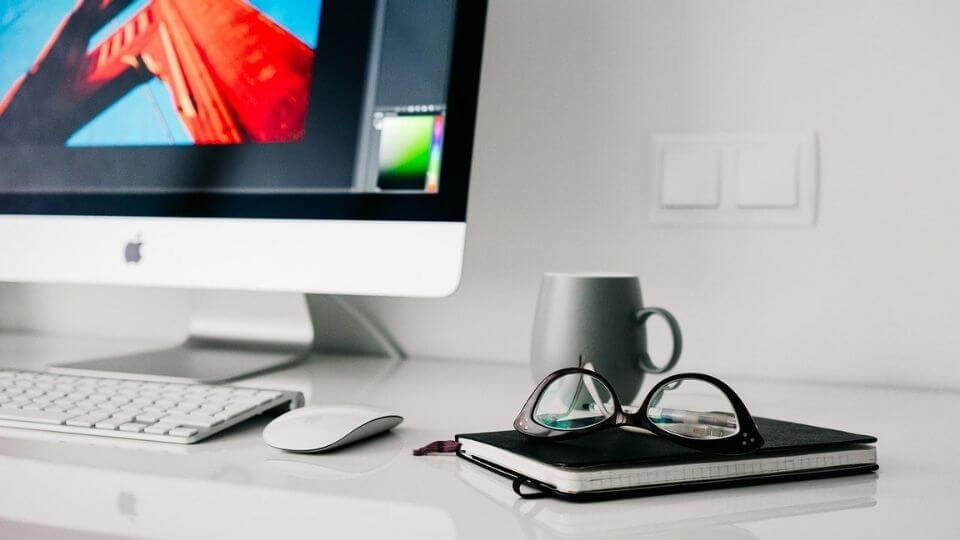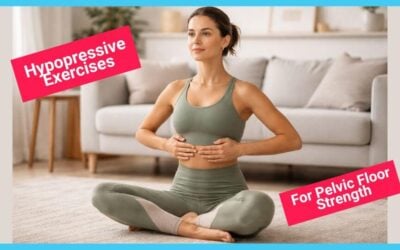Blue light glasses have exploded in popularity, especially among people who spend hours in front of screens. Marketed as a tool for reducing eye strain, improving sleep, and supporting mental clarity, they promise a lot. However, do they really work, and are the benefits of blue light glasses worth the hype or cost?
(This post includes affiliate links for which I may earn a commission at no extra cost to you should you make a purchase)
Why use blue light glasses?
Artificial light dominates modern life. Your eyes are constantly exposed to short-wave light from LED bulbs, laptops, phones, and TVs. While not all of it is detrimental, prolonged exposure to digital screens may lead to discomfort.
Natural blue light produced by the sun regulates your circadian rhythm, boosting alertness and supporting memory. However, extra exposure from artificial sources — often late at night when your body should be winding down — affects melatonin production and makes it harder to fall asleep. The brightness of short-wave light at night can also trigger digital eye strain. This can lead to problems like dry eyes, blurred vision, neck and shoulder pain, and headaches.

That’s where the benefits of blue light glasses come in, and you should discuss your options with your optometrist if you work on screens all day. High-tech lenses may lessen glare, offer anti-scratch protection, and even block specific wavelengths of light, such as the high-energy visible (HEV) light emitted by screens. Light-filtering glasses are a direct way to protect your eyes and reduce the discomfort caused by exposure to the HEV blue light spectrum.
When melatonin production drops due to photosensitivity, sleep suffers, affecting the body’s sleep cycles and your ability to focus and manage stress. So, managing screen time and filtering what you’re exposed to is a smart move.
Several studies have explored the effectiveness of these spectacles in helping people fall asleep more easily. While blue light blocking glasses may not always improve sleep quality, they do seem to help people fall asleep more easily and quickly — a potential solution for those who have insomnia after hours online. Exposure to the various blue light frequencies can trigger reduced sleep and increased anxiety, so wearing light-altering lenses can help alleviate anxious feelings and promote a more stable mood.

The science behind light-filtering glasses
Blue light glasses are specially coated lenses that block or absorb HEV short-wave light in the 380-500 nanometer range. LED screens and fluorescent lighting emit this type of light, which may interfere with hormone production and affect sleep patterns when absorbed in excess or at the wrong time of day.
The quality and design of the lenses also impact their light absorption, which ultimately determines how much they benefit you while working on digital screens. Wearing these filtering spectacles while working on your computer or laptop may provide a lesser filtering effect — up to 30.8%. In comparison, smaller screens like phones and tablets may see more success with up to 57.7% light absorption reduction.
Some lenses filter shorter frequency light with a subtle yellow or amber tint. Others are clear but contain a specialized coating that reflects harmful wavelengths. When you wear these glasses, less HEV light reaches your eyes, especially if you wear them in the hours before bed.

Blue light blocking glasses benefits
Blue light-blocking spectacles are beneficial for several reasons, but they’re not cure-alls for every computer worker’s physical ailments. When used as part of a holistic routine, you can experience benefits like these.
1. Reduced digital eye strain
When you work on a screen all day, your blink rate drops and your eyes dry out. Higher energy light is harsh on the back of the eye. Wearing protective lenses can help filter such wavelengths that contribute to eyestrain and fatigue, so you feel less stressed by the end of the day. While these spectacles won’t eliminate issues like poor lighting or screen glare, they can noticeably reduce heavy, tired-eye feelings after a long workday.
2. Improved sleep quality
As discussed earlier, HEV can delay the release of melatonin, causing you to take longer to fall asleep. By wearing filtering spectacles during nighttime screen time, you’re giving your brain a break and a chance to unwind naturally. This is a popular reason to get these glasses, as they can promote natural sleep cycles, helping with digital insomnia.

3. Fewer headaches
Light sensitivity — which can happen due to excessive light exposure — is often triggered by light at the 480nm range. This is within the blue light spectrum. Spectacles with FL41 lenses filter that light spectrum, reducing photosensitivity and the resulting headaches, so wearing these glasses can help reduce screen glare headaches.
4. Better focus and mood
When you have insomnia because of delayed sleep, you wake up cranky and more likely to be moody. If higher energy light glasses help you fall asleep more naturally, you will wake up feeling refreshed, even if you didn’t sleep better. Mental clarity and less irritability are some of the potential benefits of blue light glasses.
5. Protection from long-term risks
High-energy light waves are associated with eye damage, as they penetrate deep into the eye and may cause lasting damage. Reducing the amount of this light exposure using methods like wearing sunglasses outdoors and light-refracting lenses indoors can help protect these sensitive tissues.

Ways to support the benefits of blue light glasses
Blue-blocking glasses alone may not be enough to counteract the negative effects of hours spent in front of screens. You should approach your health holistically and support the potential gains of light-filtering lenses with these lifestyle changes:
- Create a screen-free wind-down routine: About an hour before bed, dim your lights and swap scrolling for reading or journaling to calm your mind. These activities can reinforce melatonin production and signal your brain that it’s time to rest.
- Optimize your lighting environment: Use warmer-toned lights at night instead of harsh halogen lights. These mimic sunset, helping your body transition to sleep mode.
- Try the 20-20-20 rule: It’s easy to do when you can set a timer. Every 20 minutes, look at something 20 feet from you for at least 20 seconds before resuming work. This technique and other eye exercises can help your eye muscles relax.
- Eat for eye health: A diet loaded with antioxidants from leafy green vegetables can improve your cell regeneration for healthier eyes and better sight. If you’re not a salad person, incorporating these into smoothies could be the way you hit your nutrient requirements.
- Stay hydrated and blink often: Notice if you have a habit of not blinking enough and try to improve your blink rate. Drink enough water and use artificial tears or eye drops for dry eyes to ensure sufficient lubrication.

Do blue light glasses really work?
Blue light-filtering lenses aren’t a miracle fix, but they are a helpful wellness tool, especially if you’re looking for simple, noninvasive ways to improve sleep and reduce eye strain. They’re a worthwhile investment if you frequently work on digital screens, get migraines, or struggle with late-night scrolling. Alongside other healthy screen and lifestyle habits, the benefits of blue light glasses can extend beyond your eyes, impacting how you sleep, focus, and feel throughout the day.
Disclaimer: This article contains affiliate links. This means that if you make a purchase after clicking on one of these recommended service provider links, like an insurance broker, or a travel agent, I may earn a commission – at no extra cost to you. [For my full disclosure, please see my DISCLAIMER page].




0 Comments